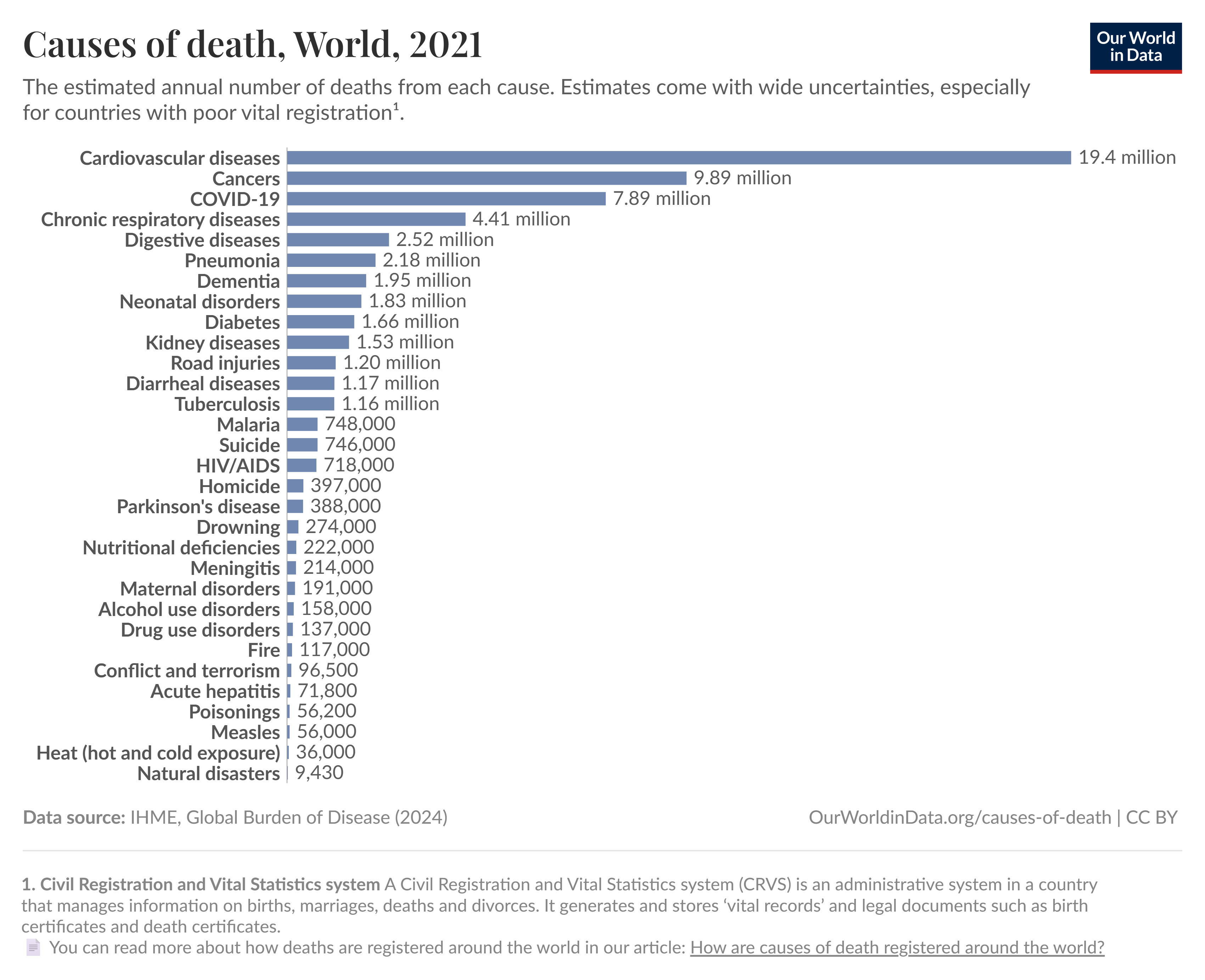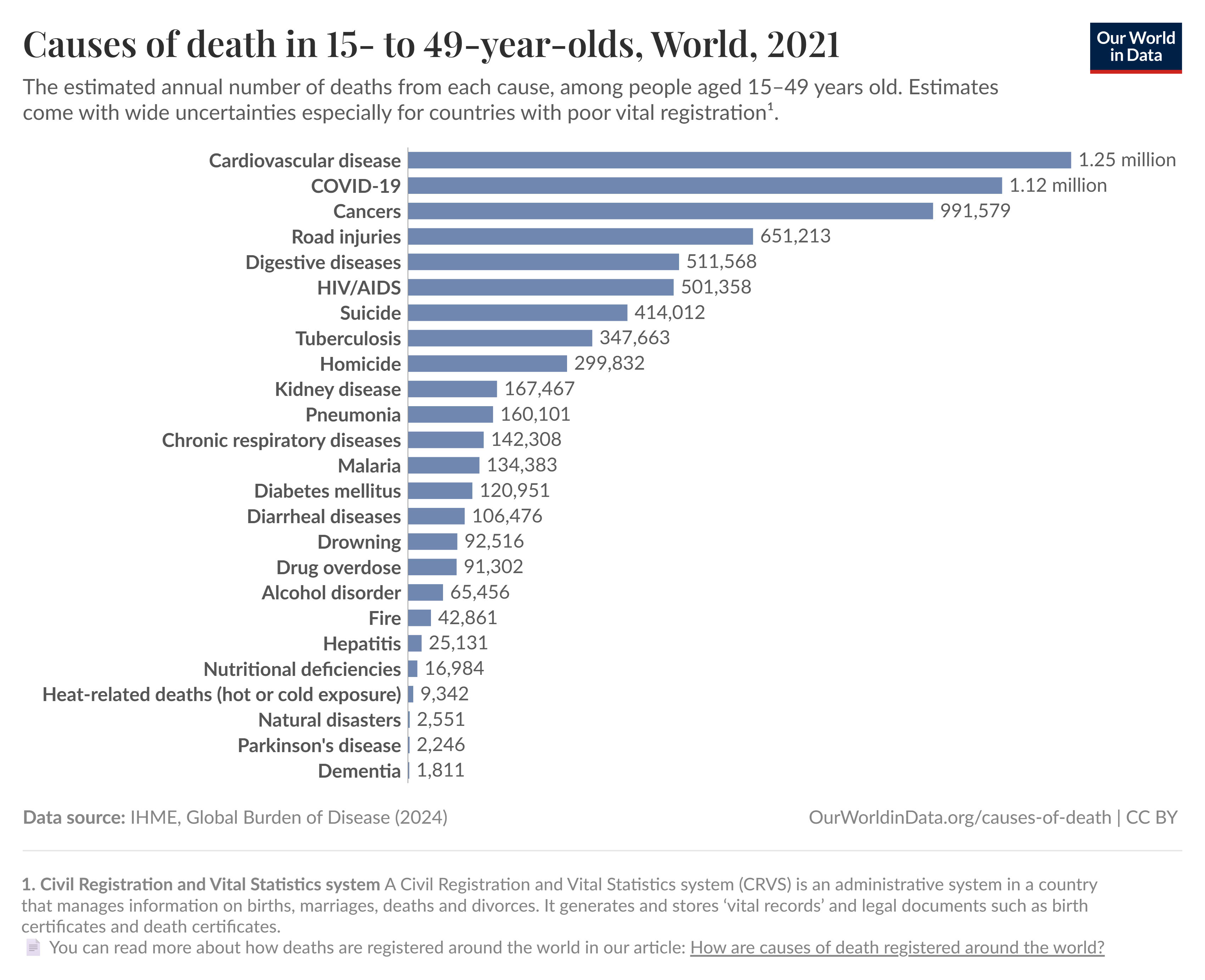Homicide Reduction - A Potential EA Cause Area?
By DavidNash @ 2025-09-09T17:21 (+12)
This is a linkpost to https://gdea.substack.com/p/global-homicide-2025-so-far
(The linkpost dives more into the data around homicide around the world, while the below touches on it's EA relevance).
Summary
For countries that have data for 2025 so far, homicide rates appear to be dropping significantly across most of them.
- USA - 2024 had a 15% drop and homicides have fallen another 20% through May 2025
- Jamaica down 42%
- Mexico down 16%
- The Philippines down 19%
Out of the 12 countries I found with 2025 data, 10 had decreases larger than 5%, and only Ecuador had an increase (although a big increase).
| Country | # of Homicides in 2024 | 2024 Rate (per 100k) | 2025 (so far) Rate (per 100k) | Change | Notes |
| Jamaica | 1,139 | 40 | 23.3 | -42% | As of August 9th |
| Canada | 788 | 1.9 | 1.4 | -23% | Based on first 8 months |
| United States | 16,940 | 5 | 4 | -20% | 5 months |
| Honduras | 2,503 | 25.3 | 20.5 | -19% | 5 months |
| The Philippines | ~5,000 | 4.3 | 3.5 | -19% | 70 days |
| Mexico | 25,469 | 19.3 | 16.2 | -16% | 7 months |
| South Africa | 27,621 | 43.5 | 38.1 | -12.4% | 3 months |
| Spain | - | 0.6 | 0.54 | -11.6% | 3 months |
| Bangladesh | 4,114 | 2.4 | 2.2 | -7.6% | 6 months |
| England and Wales | 535 | 0.94 | 0.88 | -6% | Lowest count since 2014 (up to March 2025) |
| Costa Rica | 880 | 16.6 | 16 | -3.6% | 7 months |
| Ecuador | 6,986 | 38.8 | 57 | 47% | Based on first 6 months (and the only increase) |
For data sources and a look at other countries with data from before 2025 click here.
Why this might matter for EA
I've had an attempt at doing a scale, tractability, neglectedness analysis but it's more a few thoughts bundled into some headers than any actual deep reflection.
Scale
Homicides cause more deaths globally than conflict, terrorism, natural disasters, drowning and drug disorders. A sustained 20% global reduction would save ~80,000 lives.

It ranks as the 9th leading cause of death for 15-49 year olds, above malaria, pneumonia and kidney disease (and also is maybe weighted towards the younger side of that age range).

I don't have data for below but there could be other aspects that add to the negative impact of homicide aside from the burden of disease numbers:
- Homicide could potentially have a larger emotional affect on family, friends and communities
- On a societal scale, having a high homicide rate could also constrain economic development by deterring investment, disrupting education and creating cycles of violence that trap communities in poverty and crime
Neglectedness
Despite the scale, homicide reduction receives comparatively little systematic research or funding compared to other development priorities. Most criminology research focuses on richer countries, although I haven't dived that deep into any lit reviews.
I think that even just the fact that so few countries have up to date or reliable statistics suggests that there may be some low hanging fruit in just collecting and collating the data.
Tractability
The apparent decline across diverse countries suggests underlying causes that could be identified and potentially accelerated through targeted interventions.
It may also be due to larger trends such as population change, fertility rates, economic growth, smartphone adoption, etc, that are much harder to impact.
Possible Actions
Some potential first steps.
- Data collection - Help build better homicide tracking systems, particularly in countries with high rates but poor reporting
- Research dives into specific countries - Investigate what's driving the declines in different countries
- Existing work search/Landscape analysis - Maybe there is already a large, well funded organisation looking into this but most of it seems to be national police agencies or the UN Office on Drugs and Crime who release (out of date) data every few years and don't seem that evidence focused
- Policy analysis - Evaluate which interventions show the strongest evidence for homicide reduction
If you know of organisations already working on evidence-based homicide reduction or data collection in this space, please share, this is an area I've only recently looked into and would value pointers.
The theoretical importance is high but the evidence base remains surprisingly thin for a problem of this scale.